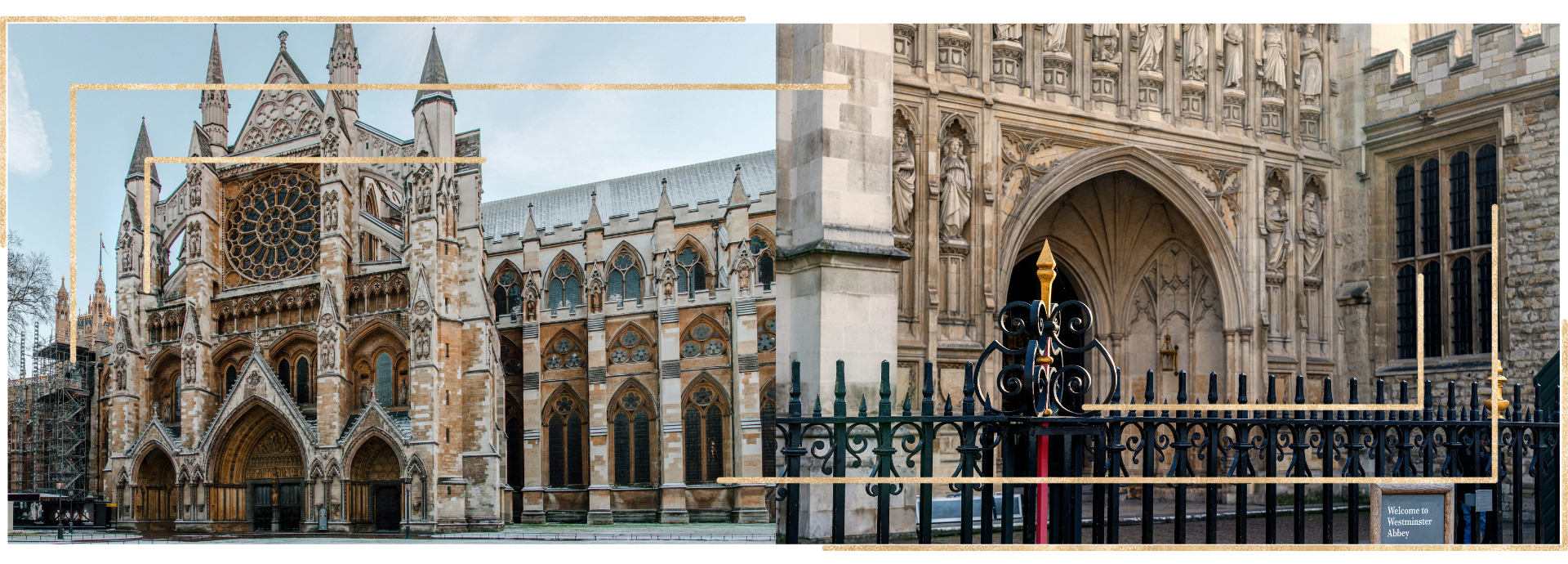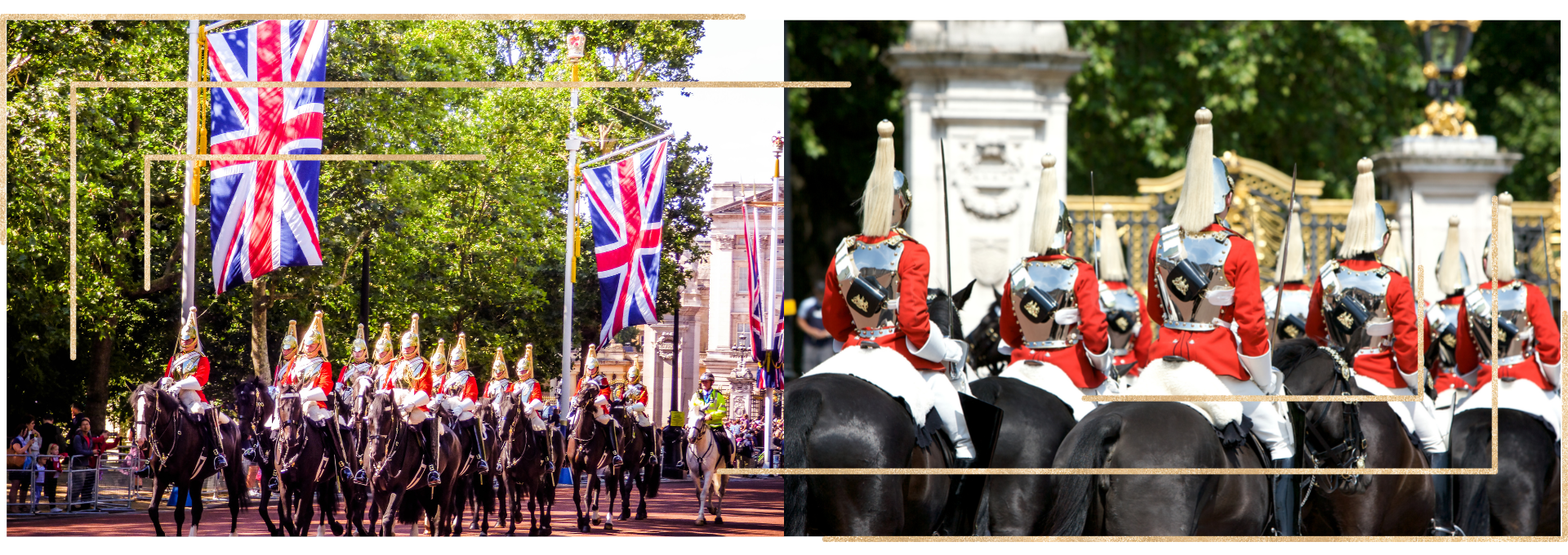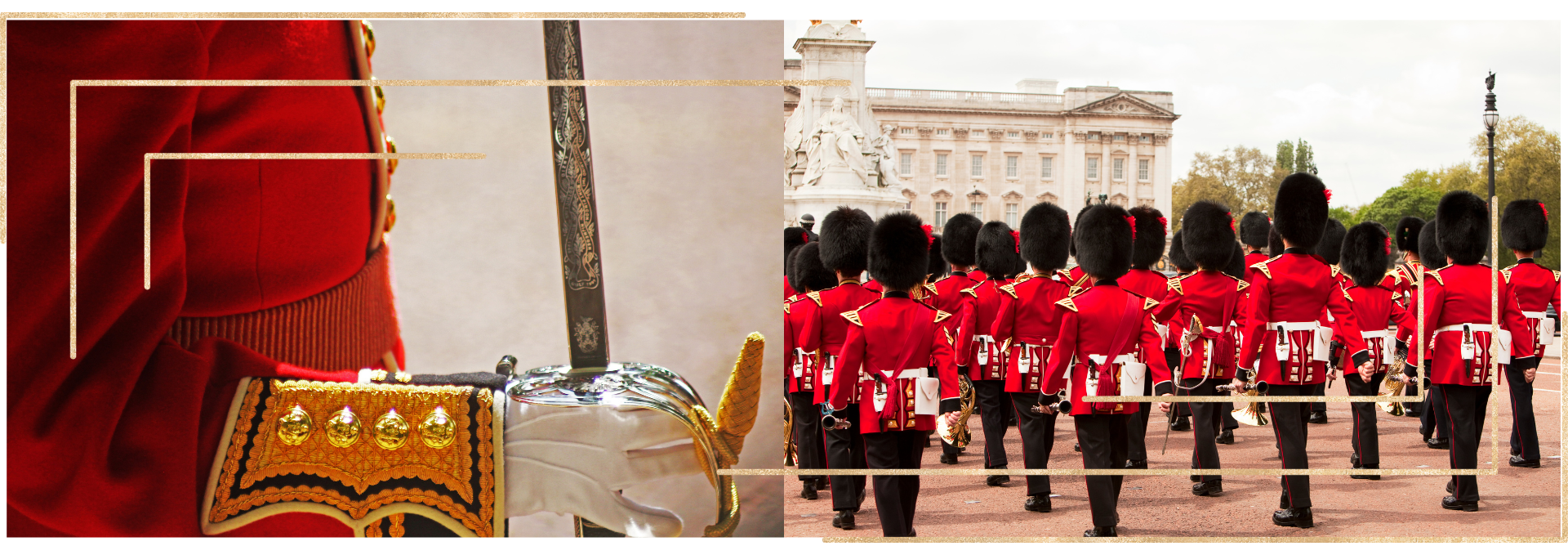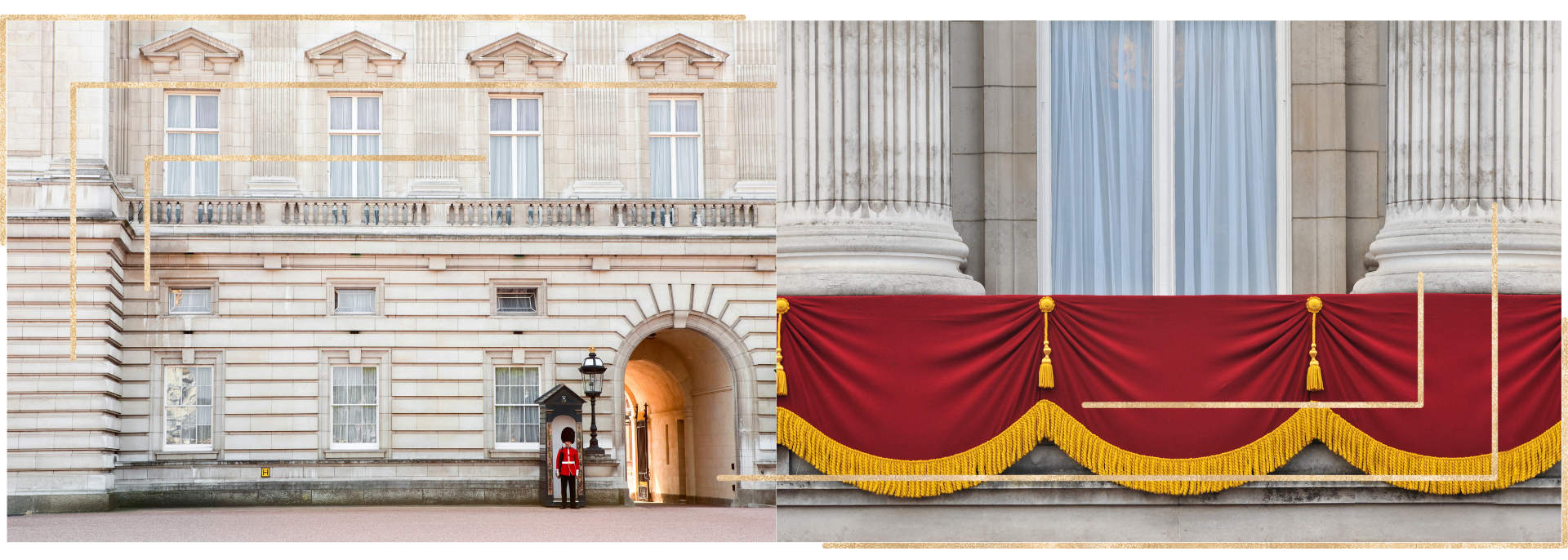The Coronation of King Charles III and Queen Consort Camilla
This coming May, millions of people around the world will gather in front of television sets and computer screens, to watch what to many, is a once in a blue moon event. Like a rather rare celestial event, the coronation of King Charles III and Queen Camilla of England, will be watched with great anticipation, and with many questions in people’s minds.
Who will be in attendance? Will it just be working Royals and the landed gentry? Or will it include commoners or nonworking Royals, who have travelled in for the event? Who will be participating in the ceremony? Will favoured charities have members in attendance? Everyone wants a seat to see the leader of this new slimmed down monarchy crowned King. Who are those favoured few who have already received “save the date” emails from Buckingham Palace. No one knows for certain.
Other questions have had the talking heads on radio, television and podcasts asking about the traditions which have long been the standard for British coronations. Will Charles and Camilla be sticking with tradition? Or will they stray from the norm. Will traditions evolve to include changes in Royal protocol? Many in the news are speculating. But we really won’t know everything until the 6th of May.
The protocol of coronations in Great Britain goes back over 1000 years. Gleaning from European traditions, government and religion entwined and evolved over time to bring us what we have seen in the coronation of Queen Elizabeth II in 1953 and soon, King Charles III and his Queen, this May.
Who will be in attendance? Will it just be working Royals and the landed gentry? Or will it include commoners or nonworking Royals, who have travelled in for the event? Who will be participating in the ceremony? Will favoured charities have members in attendance? Everyone wants a seat to see the leader of this new slimmed down monarchy crowned King. Who are those favoured few who have already received “save the date” emails from Buckingham Palace. No one knows for certain.
Other questions have had the talking heads on radio, television and podcasts asking about the traditions which have long been the standard for British coronations. Will Charles and Camilla be sticking with tradition? Or will they stray from the norm. Will traditions evolve to include changes in Royal protocol? Many in the news are speculating. But we really won’t know everything until the 6th of May.
The protocol of coronations in Great Britain goes back over 1000 years. Gleaning from European traditions, government and religion entwined and evolved over time to bring us what we have seen in the coronation of Queen Elizabeth II in 1953 and soon, King Charles III and his Queen, this May.
What To Expect
What can you expect at a coronation today? The ultimate guidebook for the Royal family is Liber Regalis (Royal Book), created in 1382. It has assisted members for over 600 years in organising this state event. This book may have captured elements of the event created by Saint Dunstan for King Edgar’s coronation ceremony at Bath Abbey in 973. Then in 1066, the crowing of William the Conqueror saw proceedings take place at Westminster Abby, where it remains today.
When Did It All Start
As Queen Elizabeth II was Lying-in-State and the fully planned State Funeral was being held, the organisation for the crowning of King Charles III began. The significant players overseeing this momentous event are the coronation committee comprising the Government of the United Kingdom, the Royal Household, the Privy Council and the Church of England. What do these bodies need to consider when planning a coronation? The coronation date, its proclamation, the price, who attends, the required furniture, music and the honours conferred to mark the grand occasion.
Of course, modern safety laws have to be adhered to, so the number of those in attendance has already been slashed by the thousands. Many are already disappointed, fearing they will never receive the coveted email and confirmation of their expected attendance from Buckingham Palace. And if someone does receive a coveted email to attend the coronation, does that mean all is well? Some members of the peerage, who wear their coronets and robes only at a coronation, have waited a lifetime for this opportunity. Will they be disheartened in the end?
Rumour has it that disappointed duchesses have had a traditional key role of theirs dismantled in the coronation ceremony. The queen wants her five grandchildren to take centre stage at the coronation alongside the King’s royal heirs, performing a role previously given to duchesses. This role has in coronations past, been performed as the new Queen is anointed with holy oil. And what of the new King’s pledge to make the coronation more inclusive of other religions? In the ceremony, the Archbishop of Canterbury by tradition, asks the King three lengthy questions. These are specifically regarding the Church of England. The coronation has now been shortened to one hour from the original three hours. Will those questions by the Archbishop be shortened or eliminated altogether? Will they and actually include the mention of other religions?
What can you expect at a coronation today? The ultimate guidebook for the Royal family is Liber Regalis (Royal Book), created in 1382. It has assisted members for over 600 years in organising this state event. This book may have captured elements of the event created by Saint Dunstan for King Edgar’s coronation ceremony at Bath Abbey in 973. Then in 1066, the crowing of William the Conqueror saw proceedings take place at Westminster Abby, where it remains today.
When Did It All Start
As Queen Elizabeth II was Lying-in-State and the fully planned State Funeral was being held, the organisation for the crowning of King Charles III began. The significant players overseeing this momentous event are the coronation committee comprising the Government of the United Kingdom, the Royal Household, the Privy Council and the Church of England. What do these bodies need to consider when planning a coronation? The coronation date, its proclamation, the price, who attends, the required furniture, music and the honours conferred to mark the grand occasion.
Of course, modern safety laws have to be adhered to, so the number of those in attendance has already been slashed by the thousands. Many are already disappointed, fearing they will never receive the coveted email and confirmation of their expected attendance from Buckingham Palace. And if someone does receive a coveted email to attend the coronation, does that mean all is well? Some members of the peerage, who wear their coronets and robes only at a coronation, have waited a lifetime for this opportunity. Will they be disheartened in the end?
Rumour has it that disappointed duchesses have had a traditional key role of theirs dismantled in the coronation ceremony. The queen wants her five grandchildren to take centre stage at the coronation alongside the King’s royal heirs, performing a role previously given to duchesses. This role has in coronations past, been performed as the new Queen is anointed with holy oil. And what of the new King’s pledge to make the coronation more inclusive of other religions? In the ceremony, the Archbishop of Canterbury by tradition, asks the King three lengthy questions. These are specifically regarding the Church of England. The coronation has now been shortened to one hour from the original three hours. Will those questions by the Archbishop be shortened or eliminated altogether? Will they and actually include the mention of other religions?
For more about the Coronation at Westminster Abbey, please go to >> westminister-abbey.org
The Crowning Event
The main event occurs at Westminster Abbey, where the King will be escorted by carriage from Buckingham Palace. Rumor has it that the very uncomfortable, but exquisite gold carriage, that previous Kings and Queens have used for the ceremony, will not be used in May. Will this have the look of an ordinary, albeit exciting royal wedding, instead of an extraordinary coronation?
Once there, the Procession to the Abbey begins quickly to move to the Procession inside the Abby. There begins The Recognition of King Charles III. After that, one can expect hymns to be sung during and after the Coronation Oath and The Anointing. The Homage is where the highly anticipated and photographed moment of a coronation occurs, where King Charles III is given the Orb placed into his right hand and the Scepter, which he holds with his left hand, as well as golden bracelets and a ring. Once this occurs, the choir will sing anthems, drums beats, trumpets sound, and joyful crying out to mark the crowing of Great Britain's new King.
Camilla, The Queen Consort, will be crowned after the Homage takes place. Once that is complete, the departure will occur, and esteemed guests, family and hosts will make their way from Westminster Abbey to Buckingham Palace to be seen by thousands of onlookers and broadcasted to millions. The King and the Queen Consort, along with the Members of the Royal Family, will assemble for a perfectly Instagramable balcony appearance. The day ends with a Coronation banquet.
Life After The Crown
In the days and months after the Coronation, there will be many public opportunities for the new King and Queen to meet their subjects. These traditionally begin with a Coronation Review of the Fleet, Service of thanksgiving, UK and Commonwealth tours, Coronation portraits, and most importantly, the Investiture of the Prince of Wales. The Investiture tells the world who will be the next in succession to the throne. — By contributor, Elizabeth Soos, at Auersmont.com
The main event occurs at Westminster Abbey, where the King will be escorted by carriage from Buckingham Palace. Rumor has it that the very uncomfortable, but exquisite gold carriage, that previous Kings and Queens have used for the ceremony, will not be used in May. Will this have the look of an ordinary, albeit exciting royal wedding, instead of an extraordinary coronation?
Once there, the Procession to the Abbey begins quickly to move to the Procession inside the Abby. There begins The Recognition of King Charles III. After that, one can expect hymns to be sung during and after the Coronation Oath and The Anointing. The Homage is where the highly anticipated and photographed moment of a coronation occurs, where King Charles III is given the Orb placed into his right hand and the Scepter, which he holds with his left hand, as well as golden bracelets and a ring. Once this occurs, the choir will sing anthems, drums beats, trumpets sound, and joyful crying out to mark the crowing of Great Britain's new King.
Camilla, The Queen Consort, will be crowned after the Homage takes place. Once that is complete, the departure will occur, and esteemed guests, family and hosts will make their way from Westminster Abbey to Buckingham Palace to be seen by thousands of onlookers and broadcasted to millions. The King and the Queen Consort, along with the Members of the Royal Family, will assemble for a perfectly Instagramable balcony appearance. The day ends with a Coronation banquet.
Life After The Crown
In the days and months after the Coronation, there will be many public opportunities for the new King and Queen to meet their subjects. These traditionally begin with a Coronation Review of the Fleet, Service of thanksgiving, UK and Commonwealth tours, Coronation portraits, and most importantly, the Investiture of the Prince of Wales. The Investiture tells the world who will be the next in succession to the throne. — By contributor, Elizabeth Soos, at Auersmont.com
For more about the Coronation, please go to >> cornontion.gov.uk
Contributor, Elizabeth Soos, has had a keen interest in cultural customs. With her European background and extensive travel, Soos developed an interest in the many forms of respect and cultural expectations in the countries she has visited. With her 20+ years’ experience in customer service within private international companies based in Australia, and her lifetime interest in manners and research, she decided to branch out into the field of etiquette and deportment. Through her self-directed studies and by completing the Train-The-Trainer’s course offered by Emma Dupont’s School of Etiquette in London and by Guillaume Rue de Bernadac at Academie de Bernadac based in Paris and Shanghai, she founded Auersmont School of Etiquette.
🍽Etiquette Enthusiast, Maura J. Graber, is the Site Editor for the Etiquipedia© Etiquette Encyclopedia






No comments:
Post a Comment
Note: Only a member of this blog may post a comment.